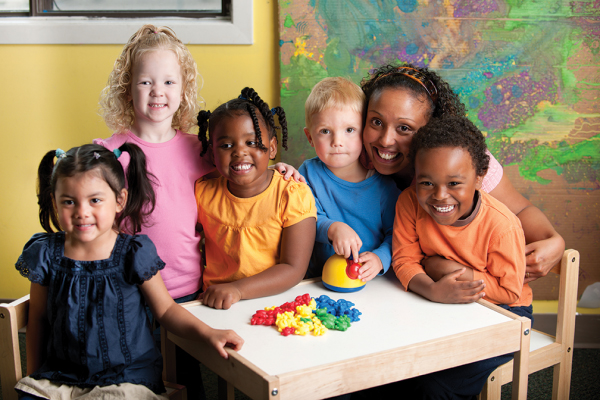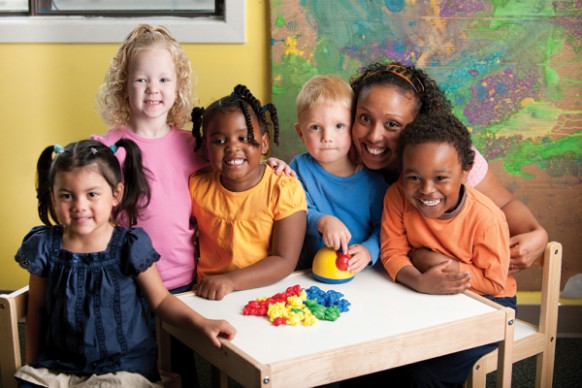Age Appropriate Discussion About AIDS
Published by SchoolAdvisor | Dec 01, 2014When it comes to having a conversation with your child, you must be mindful of their age. As a parent, you need to be able to know how to approach them regarding certain matters. Here at SchoolAdvisor, we have broken down the age groups and prepared a few points that may be of use to you.
Talking with young children (5 to 8)
Children this age may be more aware of HIV/AIDS than you may think. But they may also have fears and wrong facts about HIV/AIDS that you can help clear up. Ask your children to tell you what they know or have heard about HIV/AIDS and start from that point.
This age is not too early to give facts that will help children know how HIV and AIDS work. Kids this age can learn the basic idea that germs cause sickness. If you teach the basics about how to stop sickness and how to make good choices to stay healthy, it will help your children understand HIV/AIDS when they are older.
HIV/AIDS basics for young children:
- Keep cuts and scrapes clean.
- If you are bleeding, find an adult you know and trust who can help.
- HIV is a virus (germ) that causes AIDS. HIV gets from one person’s blood into another person’s blood and makes that person sick.
- HIV/AIDS is not in everyone’s blood. You cannot get HIV by reading, playing, talking, hugging, kissing, or eating with someone who has the virus.
- Do not touch blood. If you find needles or sharp objects, stay away from them. Getting shots from a doctor or nurse is okay.
- Do not be afraid if you meet someone with HIV or AIDS. Treat that person the same way you want to be treated when you are sick – with caring and kindness. People do not get HIV or AIDS because they are bad.
Talking with older children (9 to 12)
At this age, children’s bodies and feelings change fast. They often feel very self-aware or awkward about their bodies. They may be more curious about sex and ways to express their feelings. They also may be more curious about alcohol and drugs. Peer pressure and bullying often makes it worse.
HIV/AIDS basics for older children:
- Review the basics about getting HIV and how to prevent it — do not use alcohol or other drugs, do not have sex, and do not share needles and other drug works.
- If you talk about sex and drugs – tell you children it is better to wait until you are an adult to have sex and to make sex part of an adult, loving relationship. People who do have sex should always use a condom. Having sex without a condom is a risk for getting HIV.
- Using alcohol or drugs makes it harder to make good choices — like not having sex and always using a condom if you do have sex.
Talking with teenagers (13 to 19)
Teenagers grow apart from their families and want to do more things on their own. They want to “fit in” with others in their age group. Many teens have strong personal values and make choices every day. But they are also under a lot more pressure to try alcohol and other drugs and to have sex.
HIV/AIDS basics for teens:
- Abstinence is the only sure way to prevent the spread of HIV. The best way to protect yourself from HIV is not to have any kind of sex (vaginal, oral, or anal) and not to inject drugs.
- Use a condom. Use a latex male condom or a female condom the right way each time you have sex. Other forms of birth do not protect you from HIV or other sexually transmitted diseases.
- Do not use alcohol and other drugs. They make it harder to say “no” to having sex — or to use a condom if you do have sex.
- Never share needles to inject anything.
- Body piercing or tattooing needles can also have blood with HIV. If your children are going to get tattoos or body piercings, find an artist who uses only new, clean needles and safe tools.
Recent Articles
- Happiness vs. Academics: Are We Sacrificing Our Children’s Well-Being for Better Grades?
- How Nexus International School Malaysia Empowered James Low’s Future
- Meghan Lim: A Journey of Leadership and Growth
- How Alice Smith and KTJ Shaped Chelsea Lim’s Success
- Rethinking Education: Fostering Lifelong Passion, Character, and Well-Being in the Next Generation







 Login with Google
Login with Google